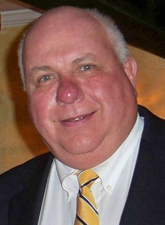A postal inspector recently used a simple device to catch three men suspected of stealing checks from mailboxes in Pelham and New Rochelle.

The device, a key trap, led to a federal grand jury indictment Nov. 26 against three Bronx men, Jonathan Ranfeil Jimenez, Martin DeJesus Reyes Maria and Mayobanex Reyes, on charges they stole more than $61,000 in a check washing scheme.
The men are accused of mail theft, conspiracy to commit bank fraud, aggravated identity theft and, for Jimenez and Maria, use of a stolen post office key.
In September 2018, postal inspector Michael Memoli installed a hidden camera near a mailbox outside the Pelham post office.
A few weeks later, two men were photographed using a postal key to get into the mailbox, and one could be seen carrying an Adidas duffel bag.
Memoli installed a key trap, a device that makes a key get stuck in a lock and requires special tools to remove.
The trap worked. On Oct. 1, 2018, an off-duty Pelham police officer called for back-up when he saw two men trying to open the mailbox. Officers chased and caught the men and recovered an Adidas duffel bag with about 300 pieces of mail.
Memoli retrieved the trapped key and traced the serial number to a key that had been missing from the New Rochelle post office.
He also reviewed surveillance footage from mailboxes in New Rochelle, taken shortly before the two men were arrested in Pelham. The images show two men stealing mail and placing it in an Adidas duffel bag.
Police identified the suspects as Jimenez and Maria.
Using traditional investigative tools –police reports, postal records, bank records, surveillance footage, photographs and interviews – the inspector identified eight people who had mailed checks in Pelham, New Rochelle and Staten Island that ended up in strangers’ bank accounts.
The stolen checks appeared to have been “washed,” whereby checks were soaked in solvent to remove the ink and then filled in with new payee names and amounts. Then the checks were deposited into bank accounts, using ATM cards and personal identification numbers of other people.
A New Rochelle woman, for instance, used a mailbox on Main Street to mail a check from her J.P. Morgan Chase bank account. On Sept. 7, 2018, Jimenez, Maria and Reyes were allegedly at a Bank of America ATM machine on Columbus Avenue in Manhattan. One of them, according to the criminal complaint, deposited the woman’s check into an account of an individual who is not named in the complaint. The check had been altered, making the stranger the payee and the amount $8,700.
Other stolen checks were allegedly deposited by the three suspects in bank accounts of several strangers, using ATM machines on Lenox Avenue and Broadway in Manhattan.
The post Mailbox trap snares Pelham and New Rochelle check washing suspects appeared first on Westfair Communications.

 “Unfortunately, his desire to provide for his family, coupled with his unique background and characteristics, led Mr. Roberson to engage in fraudulent behavior,” Manhattan attorneys Michael D. Bradley and Margaret M. Shalley said in a sentencing memorandum.
“Unfortunately, his desire to provide for his family, coupled with his unique background and characteristics, led Mr. Roberson to engage in fraudulent behavior,” Manhattan attorneys Michael D. Bradley and Margaret M. Shalley said in a sentencing memorandum. Both men pleaded not guilty in their initial appearances Dec. 11 before U.S. Magistrate Judge Paul E. Davison. They were released from custody on $250,000 personal recognizance bonds.
Both men pleaded not guilty in their initial appearances Dec. 11 before U.S. Magistrate Judge Paul E. Davison. They were released from custody on $250,000 personal recognizance bonds. Scarpino said that Mecca was working as a human resources officer for FujiFilm at its headquarters in Valhalla when she committed the larceny. The company offered its employees a benefit program called FujiFilm Achiever’s Points. The incentive program rewarded employees who demonstrated outstanding performance with points, which could be accumulated and eventually redeemed for gift cards.
Scarpino said that Mecca was working as a human resources officer for FujiFilm at its headquarters in Valhalla when she committed the larceny. The company offered its employees a benefit program called FujiFilm Achiever’s Points. The incentive program rewarded employees who demonstrated outstanding performance with points, which could be accumulated and eventually redeemed for gift cards.



 Veronica Huitzil, the owner of Huitzil Tax Services, was accused of putting together tax returns between 2014 and 2018 that contained multiple intentional falsehoods, including nonexistent dependents, losses for fictitious businesses and inflated or fabricated charitable deductions, medical expenses and employee business expenses. With her guilty plea, Huitzil agreed that her actions resulted in a fraud totaling $898,665.
Veronica Huitzil, the owner of Huitzil Tax Services, was accused of putting together tax returns between 2014 and 2018 that contained multiple intentional falsehoods, including nonexistent dependents, losses for fictitious businesses and inflated or fabricated charitable deductions, medical expenses and employee business expenses. With her guilty plea, Huitzil agreed that her actions resulted in a fraud totaling $898,665.

 Berman said invoices
Berman said invoices  U.S. District Judge Nelson S. Roman also sentenced Jacqueline Graham, 54, to five years of supervised release and ordered her to repay $694,450 to her victims and to forfeit $138,942 in ill-gotten gains.
U.S. District Judge Nelson S. Roman also sentenced Jacqueline Graham, 54, to five years of supervised release and ordered her to repay $694,450 to her victims and to forfeit $138,942 in ill-gotten gains.
 Nikc “ran these businesses and managed his personal finances in a manner designed to conceal his sources of income and prevent the IRS from calculating or assessing his tax due,” the government claims.
Nikc “ran these businesses and managed his personal finances in a manner designed to conceal his sources of income and prevent the IRS from calculating or assessing his tax due,” the government claims. Despite its cooperation with the authorities and Mastercard, the complaint states, “Mastercard terminated Loyal Bank’s license in May 2018, thereby driving Loyal Bank straight into liquidation.”
Despite its cooperation with the authorities and Mastercard, the complaint states, “Mastercard terminated Loyal Bank’s license in May 2018, thereby driving Loyal Bank straight into liquidation.” According to the companies, the new endeavor will combine Fenergo’s client lifecycle management product with IBM’s RegTech portfolio of anti-money laundering and know-your-client solutions. The result is a new artificial intelligence application suite that will address risk and compliance issues while helping to repel digitally-borne financial criminals.
According to the companies, the new endeavor will combine Fenergo’s client lifecycle management product with IBM’s RegTech portfolio of anti-money laundering and know-your-client solutions. The result is a new artificial intelligence application suite that will address risk and compliance issues while helping to repel digitally-borne financial criminals.